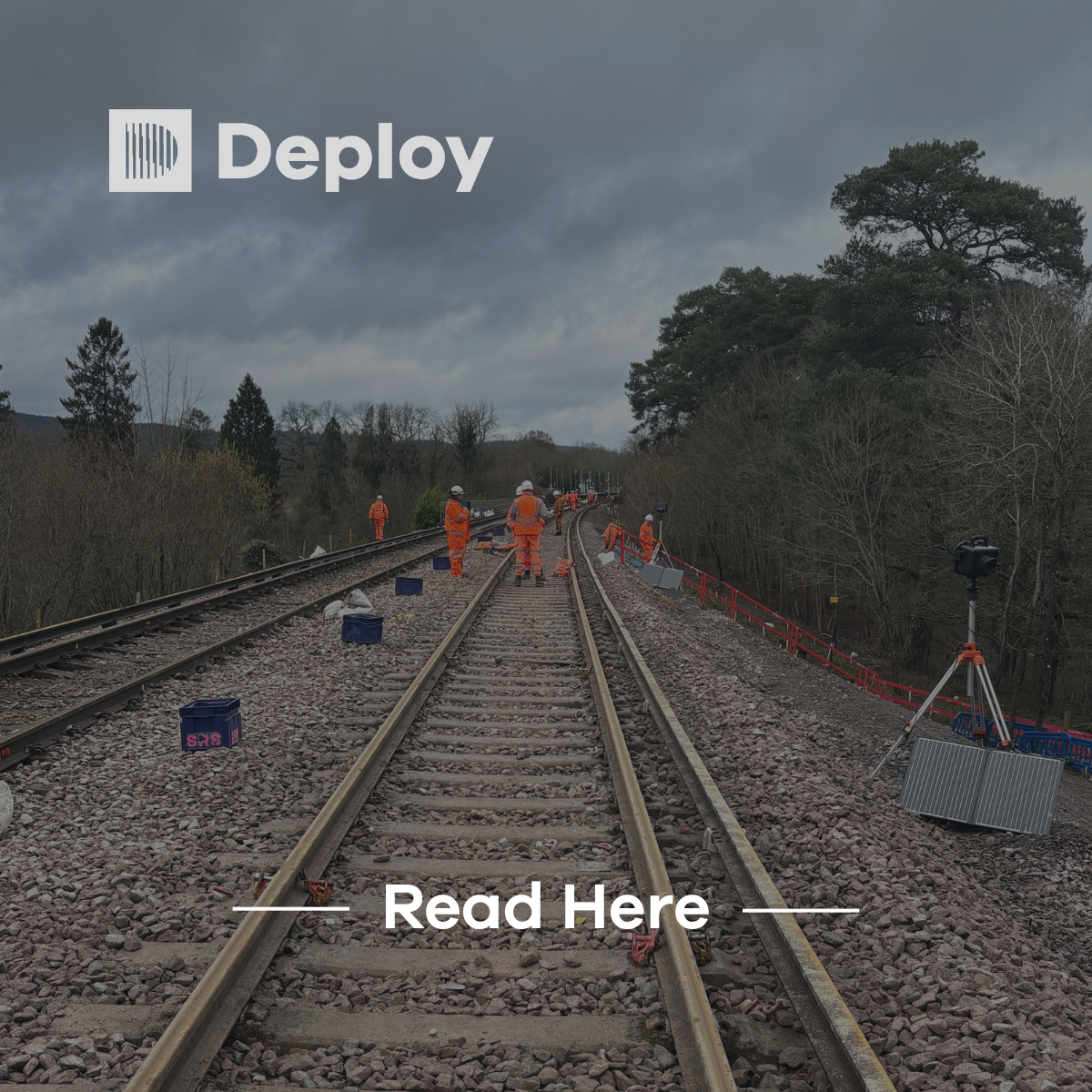February 11, 2026
A well-crafted CV does far more than list qualifications. It determines whether your application rises to the top of a recruiter’s shortlist or disappears into a crowded applicant tracking system. As rail, energy, manufacturing, and digital infrastructure projects become more complex, employers are actively seeking professionals who can demonstrate both deep technical expertise and strong digital capability. This is where the hybrid CV becomes essential. A strong infrastructure CV is no longer about choosing between hands-on site experience or digital competence. The most competitive candidates clearly articulate how physical delivery and digital systems work together in their day-to-day roles. If your CV doesn’t reflect this balance, you risk underselling your value, no matter how experienced you are. Why a Well-Crafted CV Puts Your Application on Top Recruiters reviewing infrastructure CVs are not just scanning for job titles. They are evaluating project outcomes, safety accountability, digital literacy, and leadership potential, often in under 30 seconds per application. A CV that clearly communicates results, responsibility, and relevance stands out immediately. Hiring teams increasingly use keyword-driven screening tools alongside human review. This means your CV must be both searchable and credible. Clear structure, industry-specific terminology, and measurable impact are what move candidates into the “top-tier” category. At Deploy, CVs that perform best consistently demonstrate three things: evidence of delivery, understanding of modern infrastructure systems, and the ability to operate across physical and digital environments. What Are the 5 P’s of a Resume? For infrastructure professionals, the most effective CVs align with the five P’s: Profile, Projects, Performance, Proficiency, and Progression. A profile sets context, clearly positioning you within rail, energy, or infrastructure delivery. Projects provide evidence of scale, complexity, and environment. Performance shows outcomes: what improved, what was delivered, and what risks were managed. Proficiency encompasses both technical and digital skill sets. Progression demonstrates growth, responsibility, and leadership over time. When these five elements are present and clearly articulated, recruiters can quickly understand both your capability and your potential. How to Expertly Craft a CV for Infrastructure Roles A high-performing infrastructure CV tells a story of how you contribute to delivery, safety, and system performance. Start by anchoring each role to the type of projects you’ve worked on, then explain your specific responsibilities and the impact of your work. Instead of listing tasks, focus on how your decisions influenced outcomes. Did you improve safety compliance? Reduce downtime? Introduce digital reporting? Support multidisciplinary teams? These are the details hiring managers look for when assessing seniority and readiness. Writing an Effective, Results-Driven Job Summary An optimised job summary should immediately answer three questions for the reader: What environment did you work in? What were you responsible for? What measurable impact did you make? This approach helps recruiters quickly assess both capability and credibility. Example of a strong infrastructure job summary: Senior Project Engineer | Rail & Civil Infrastructure “Delivered multi-disciplinary rail and civil infrastructure projects valued at £25m+, supporting end-to-end project delivery from design coordination through to commissioning. Led safety-critical activities in live rail environments, achieving zero reportable incidents while improving compliance through the introduction of digital site reporting tools. Collaborated with planners, contractors, and asset owners to reduce programme delays by 12% and enhance system performance through data-led decision-making and proactive risk management.” This type of summary works because it anchors the role in project scale, highlights safety and operational responsibility, and demonstrates technical and digital fluency, all within a concise narrative. It moves beyond task-based descriptions and clearly positions the candidate as someone who understands delivery, accountability, and outcomes. When structuring your own job summaries, aim to combine project context, leadership responsibility, and tangible results. This is exactly what hiring managers look for when assessing readiness for senior infrastructure, engineering, or delivery-focused roles. Key CV Sections That Signal Results and Expertise The strongest infrastructure CVs include clearly defined sections that recruiters expect and trust. These typically include a professional summary, project experience, technical and digital competencies, safety and compliance credentials, and leadership or stakeholder engagement experience. Within these sections, high-ranking terms such as project delivery, safety-critical environments, asset management, BIM coordination, SCADA systems, digital rail, data-driven decision-making, systems integration, and operational assurance help your CV align with modern infrastructure hiring needs. These terms do not inflate your profile; they accurately reflect how infrastructure work is delivered today. Using High-Impact CV Language Effectively Certain CV terms consistently perform well because they communicate value quickly. Phrases such as led end-to-end delivery, implemented digital reporting tools, improved safety compliance, optimised asset performance, supported system integration, and enabled data-led decision-making signals both responsibility and impact. If you are planning long-term career progression, Deploy’s perspective on building a safer, smarter rail career offers valuable insight into how skills and experience should evolve. Top Skills That Push Your Application to the Top Employers are increasingly prioritising candidates who can operate confidently at the intersection of physical infrastructure and digital systems. Skills that consistently attract recruiter attention include: Technical delivery experience across rail, energy, or civil projects, combined with digital capabilities such as BIM coordination, data analytics, asset monitoring, or safety systems integration. Strong safety leadership, stakeholder communication, and adaptability to new technologies further strengthen your profile. Candidates working in rail and safety-critical environments should clearly articulate their digital awareness, as explored in Deploy’s insight on digital safety-critical skills , which highlights how technology is reshaping operational competence. Final Takeaway: Where Deploy Fits In A hybrid CV is not about adding more content; it’s about clarity, relevance, and alignment with how infrastructure work is actually delivered. The strongest CVs bridge technical rigor with digital fluency and present them in a way recruiters immediately understand. At Deploy , we work closely with candidates to refine CVs that reflect real-world infrastructure demands. We understand how hiring managers screen applications, what keywords matter, and how to position experience for long-term success, not just the next role. If you want your CV to work as hard as you do and to open doors across rail, energy, and infrastructure projects, Deploy is here to help you stand out for the right reasons.













